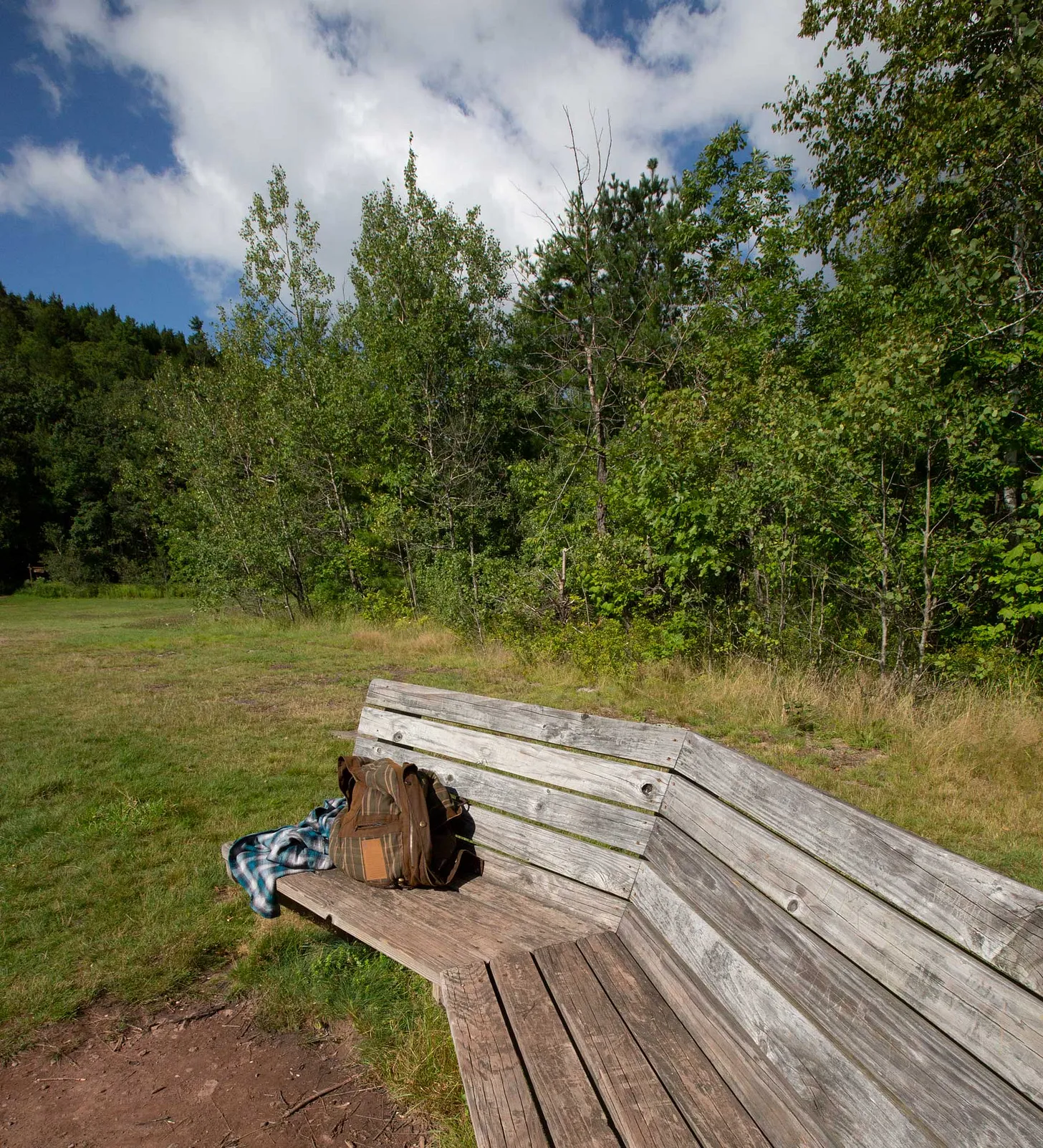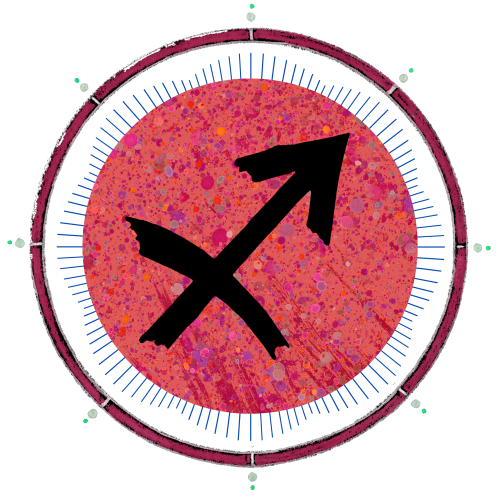Dear Friend and Reader:
Wednesday morning I woke up early and thought I would drive north toward an obscure state road called 23A, which winds through the Catskills. My not-so-firm plan was to visit the Schoharie Reservoir and write the rest of the horoscope in the Prattsville Diner nearby.
These are ordinary places, nothing special; it just seemed like the thing to do. My sleep schedule is all over the place since returning from Thailand on Saturday, so I’m taking advantage of being awake near daybreak, and doing something different when I am.
On the way, I drove right past the entrance to the North-South Lake camping area, a state park with an astounding view of the entire Hudson Valley. I turned around and went back the 100 feet to the little road leading there. It was a few miles to the entry booth, where I paid my $10. Another mile or so to the very end, and I parked at a shady spot on a cul-de-sac at the edge of nowhere.
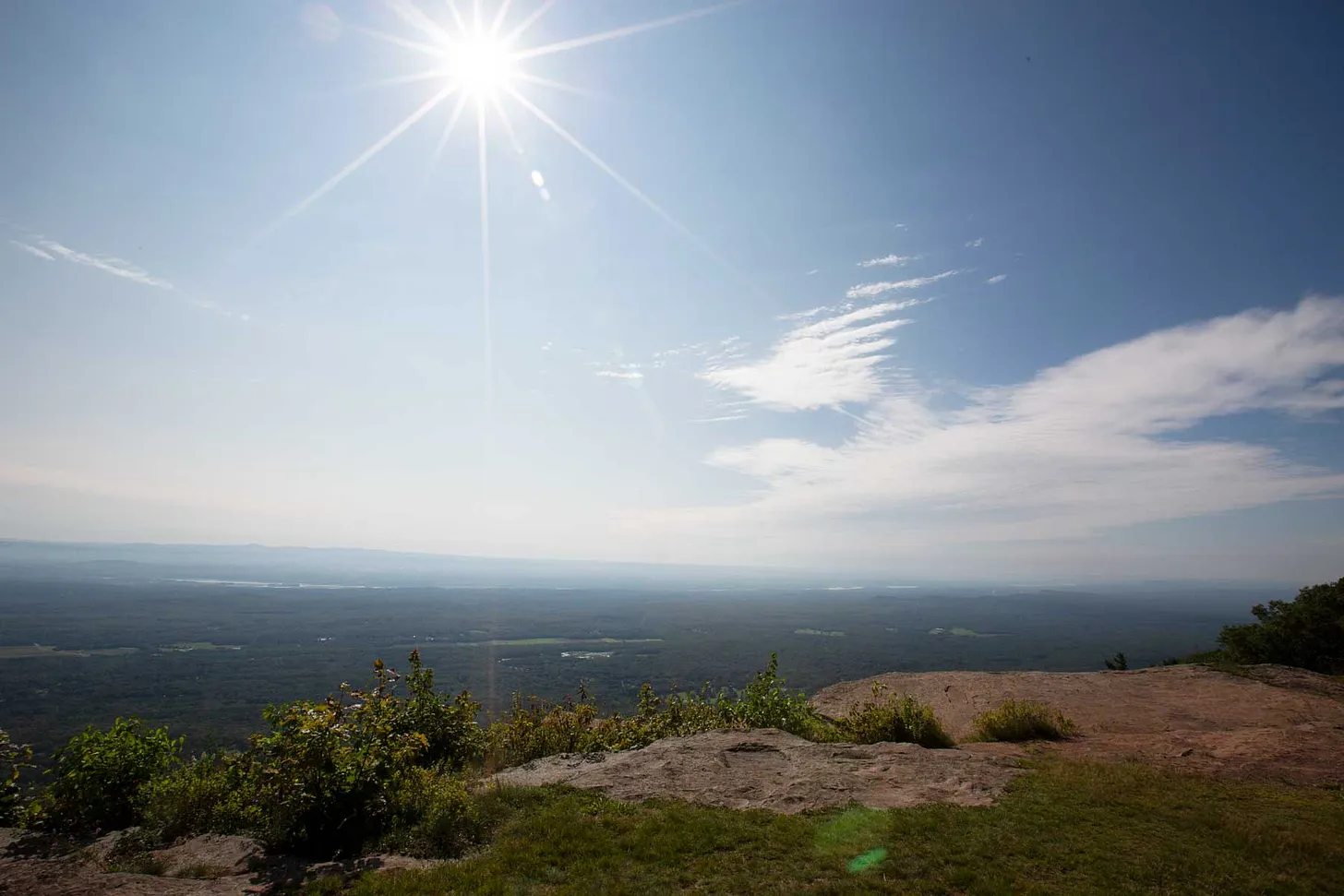
The Unusual Sensation of Peace and Silence
On the cliff where I was headed once stood the Catskill Mountain House, the hotel that began tourism in this region when it was near-wilderness back in 1824. The Mountain House was a big deal, offering a stunning view that inspired the Hudson River Valley school of painters.
In that era, visitors would take a steam ship up the Hudson from New York City, then a train across the valley, then a five-hour stagecoach ride, and at times, a special elevator. The hills were so steep on the 2,200 foot climb from the valley floor, the well-heeled passengers in tuxedos and gowns would have to get out and walk so the horses could pull their coach up the incredibly steep hills.
My trip was much easier. The place is about 45 minutes from my door. With some practice, I learned how to get there last summer (first, to the campground, the correct parking area near the trailhead and then out to the cliff, with my gear, in the dark) all to photograph sunrise.
Hardly anyone was there on a late August weekday morning. At the top, I was treated to about 45 minutes of having the place to myself — the utter silence and solitude of being in the sky, but on the ground.
Gone was the din of society and of the ubiquitous fear that infuses it. The enveloping peace came with an odd but lovely sense of relief, like the experience of a machine suddenly being turned off, and a drop of pressure, realizing it was dominating your mind from the background.
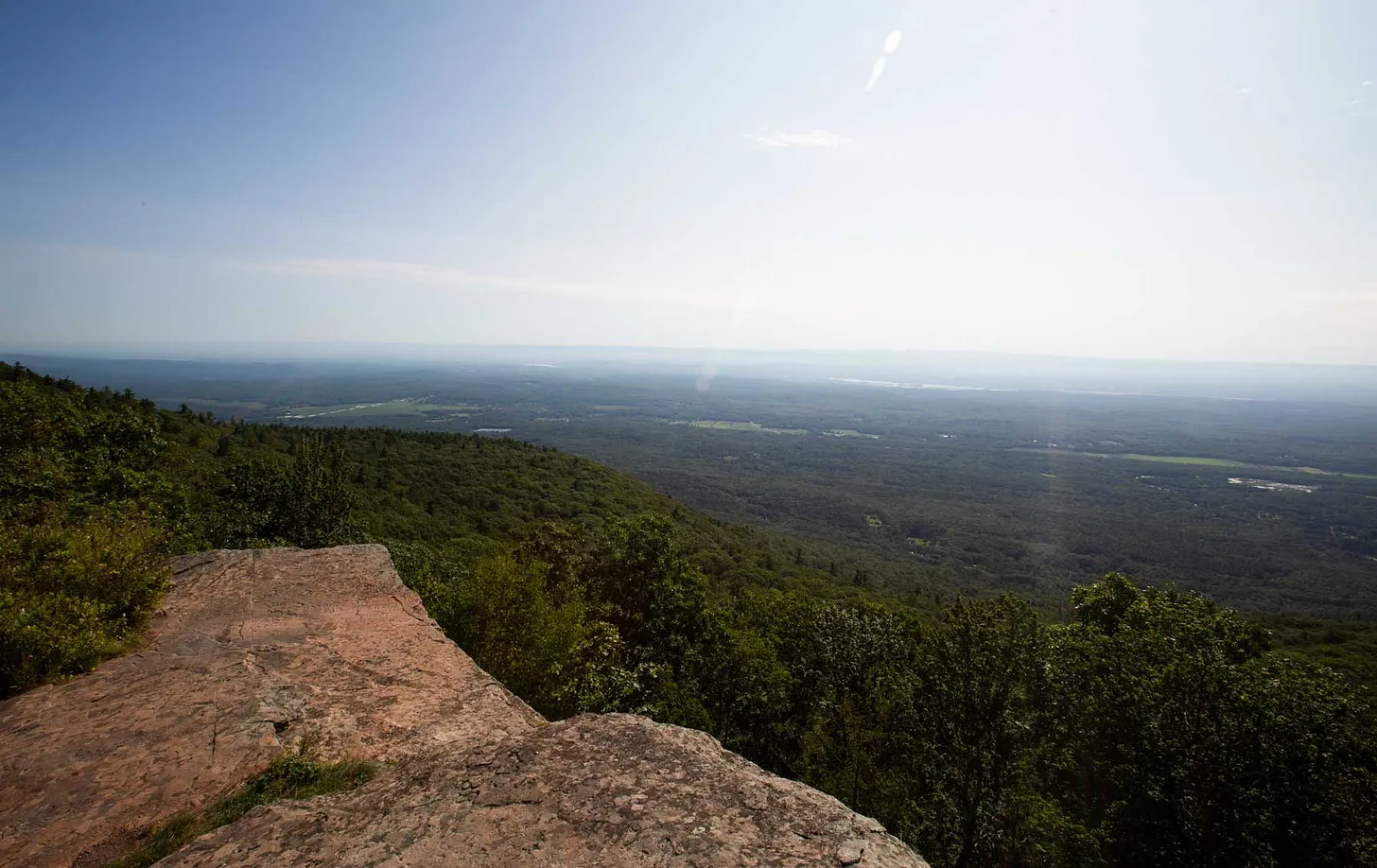
When is it Going to Happen?
The fear of our society has become a grinding vibration that seems to soak through everything and influence every human exchange. It’s connected to a sense of desperation and impending doom that lingers right below the surface of consciousness, and can be found wherever you poke a stick.
Few are willing to talk about it. There is some kind of taboo, though the unasked question seems to be, “When is it going to happen?”
This is not the usual scramble for everyday economic survival. It might be, except for the part about there potentially being no future. We have now been given a taste of this.
After the dramatic and terrifying events of 2020, the sensation is not so obvious. Yet tune in and you’ll notice that the background anxiety level has gone up so considerably since that time. In recent memory, we have lived through the shutdown and lockdown of the world on threat of death by suffocation, followed by an even more terrifying global medical intervention campaign — a kind of rehearsal for “The End.”
“The End,” as foretold by Revelations, is part of the scenario: for centuries, people have been preparing for Armageddon or Apocalypse or the shit going down — or whatever they like to call it — and this has infused all of politics and social life.
Writing, research, photography and production of this article is sponsored by Planet Waves subscribers and customers. Thank you for supporting this work and the people who create it.
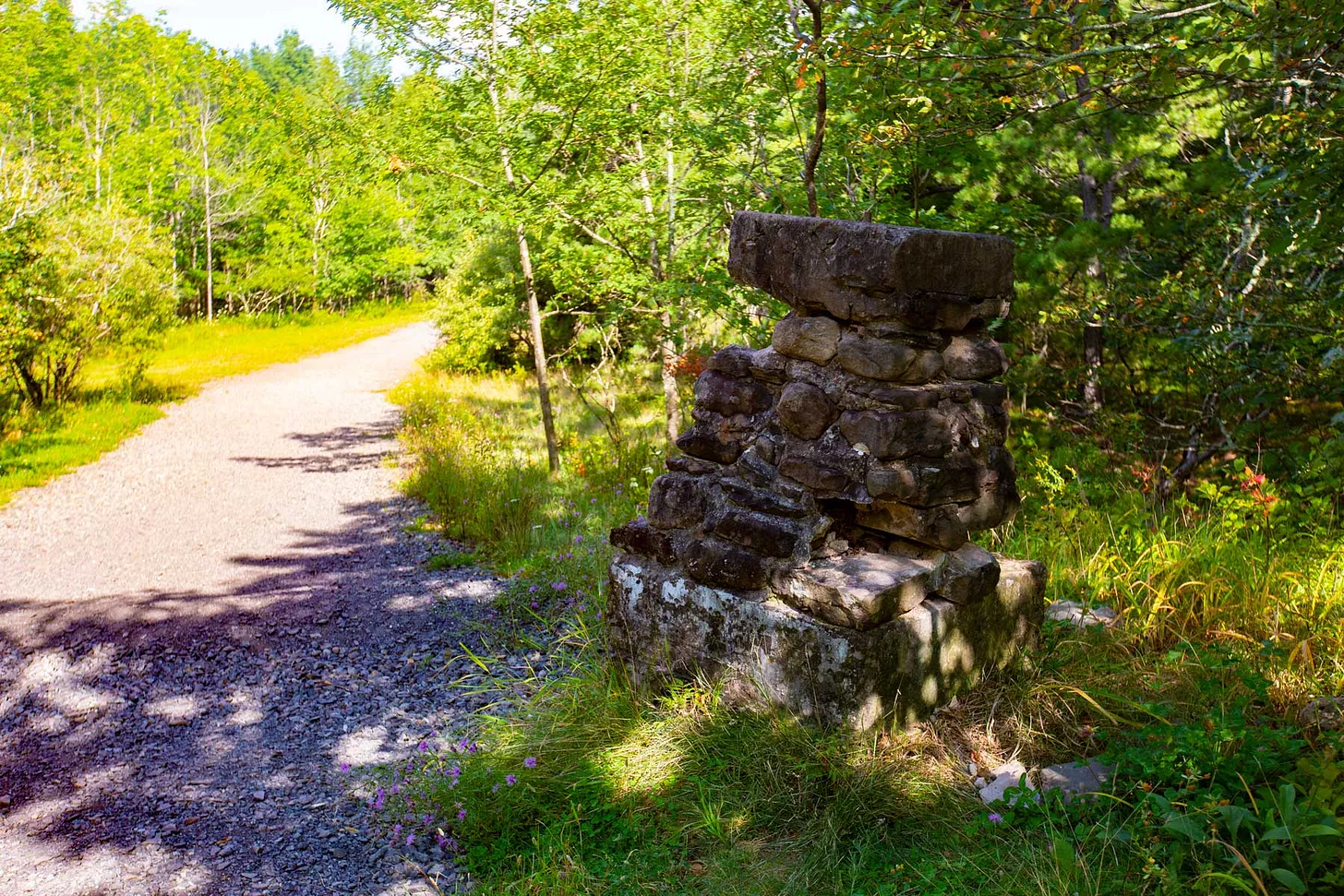
The Tide of Fear is Rising
As far as I can tell, the source is anything connected to the internet, but then it spills over into everything, so much so that we take it for granted. For example, the notion of an “Eris” variant of “covid” is being introduced; I have read that some locales are introducing masking and “social distancing,” as if we have not had enough of that farce.
I’m inclined to say that anyone who falls for this again deserves it. But people are severely weakened right now. To some extent, we have been driven out of body and are living like phantoms. Then every day the disaster lottery goes off. One day it’s a mass murder to rival the Mansons. Another day it’s a hurricane. Another day it’s a strange fire situation in Maui.
Events that used to make a year or a summer memorable in the worst sense of that idea now happen twice a week, or every single day. And this is all driven by and sustained by not just digital technology but by the consciousness that it creates.
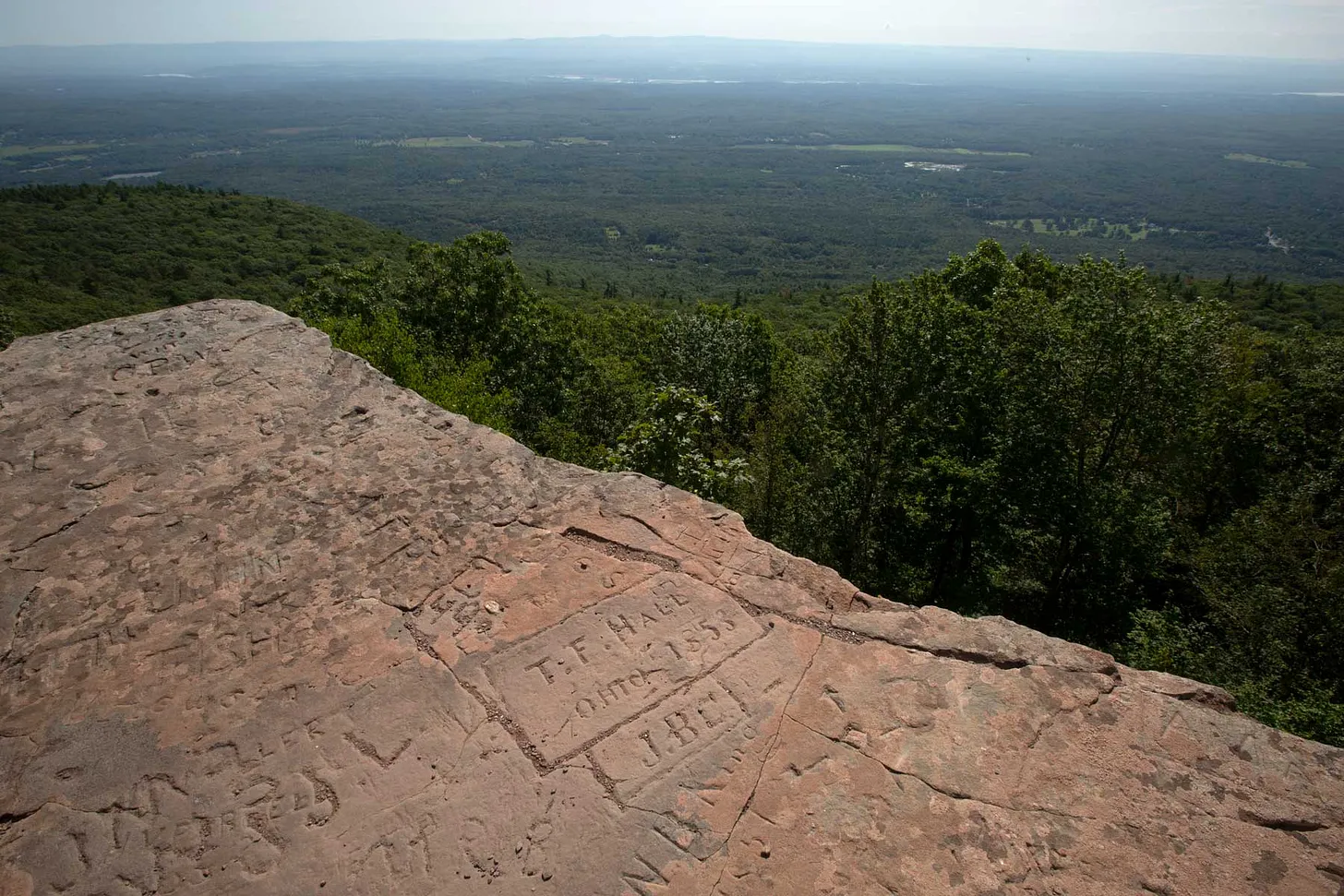
They Call it Fear Porn. It’s Really Anesthesia.
The internet is no longer this thing we go to, a beach that makes available some special source of information. It is everywhere, the principal place of commerce for the Western world, and also where people seek news and entertainment. We live and breathe internet, and have yet to acknowledge that it’s not a thing apart, but something that has transformed us utterly.
On countless thousands of video channels, prophets of doom go on and on obsessively, and the more frightening, the more views they seem to get. My theory is that the anxiety is so penetrating and so generalized that to focus it on anything specific is a relief — “Oh, that’s what I was worried about.”
The effect is a cutting-off or amputation of both sense and sensibility. The final result is anesthesia.
A current meme is that nothing is true. No science is true. No history is true. Everything is a lie. Everything is a scam. Everyone is trying to get one over on you. Gravity is a hoax, outer space is a hoax, the Earth is a stationary plane around which the entire universe orbits, we are living inside of a simulation and the universe itself is a hoax, and there are people making videos about that every day.
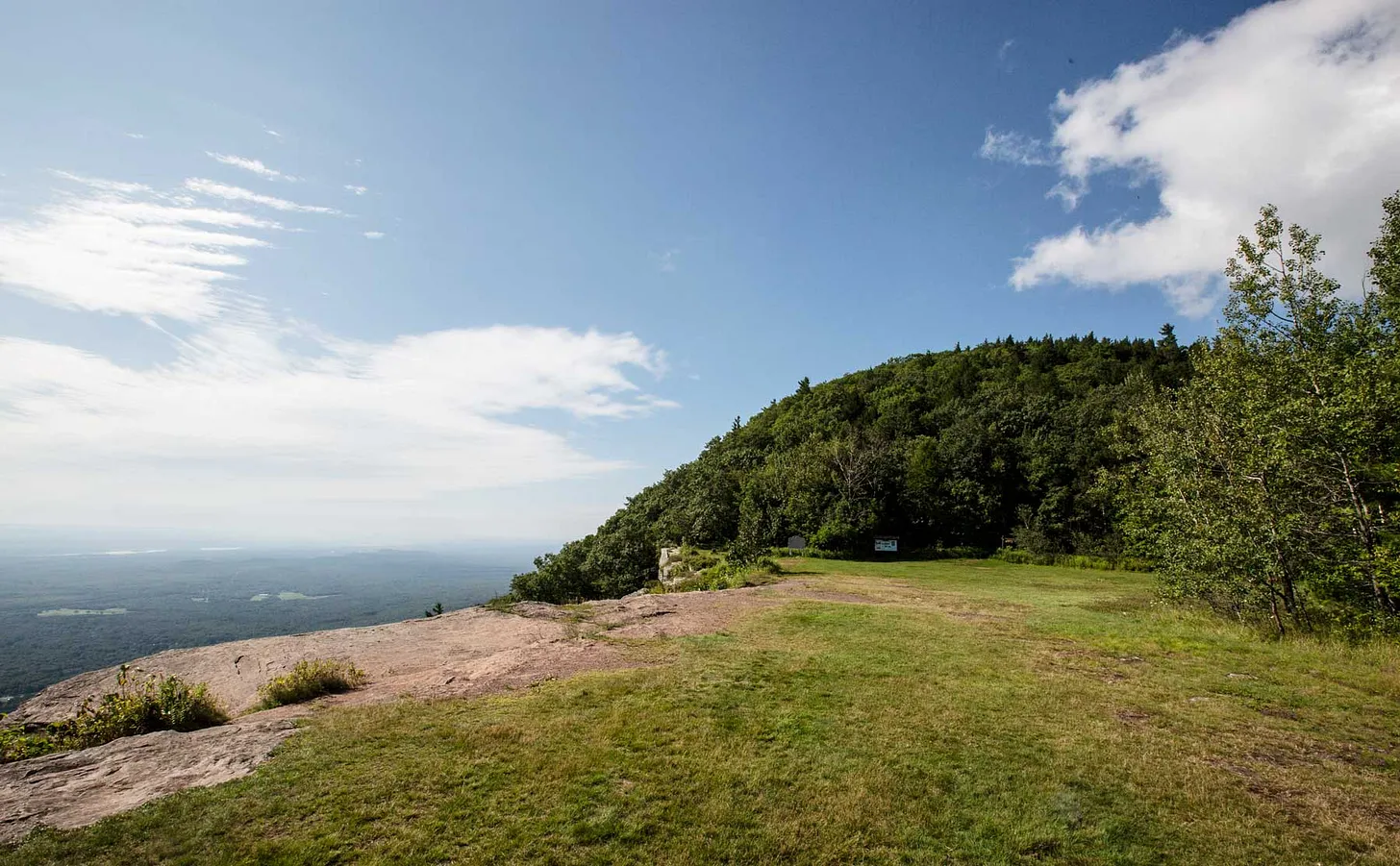
It’s no surprise that nearly everything spoken about is speculative. It’s more lucrative to keep everything in the haze of potential. I’m not saying it’s all wrong, either. There are problems brewing and there have been for a while. Dollars are built on debt; that is how money is created (you sign a mortgage, go into debt, and are given cash — on a grand scale).
It’s getting difficult to know what to do with any more funds than you can fit in your pocket, if you have any. Moves to convert everything to a central digital economy are rapidly underway — “smart” currency that will decide for you how far from home you can spend it.
In the past, gold and silver have been confiscated, on pain of arrest and imprisonment. Fake dollars are being generated so fast they are worth a little less every day. Many people are scrambling to get through the week, and know they cannot deal with any significant financial emergency.
What I would like to see more of is the spirit, “I see you’re struggling; what can I do to help?” But that would imply the need to take action, rather than soaking in bitterness, negativity and clinging to what you’ve got.
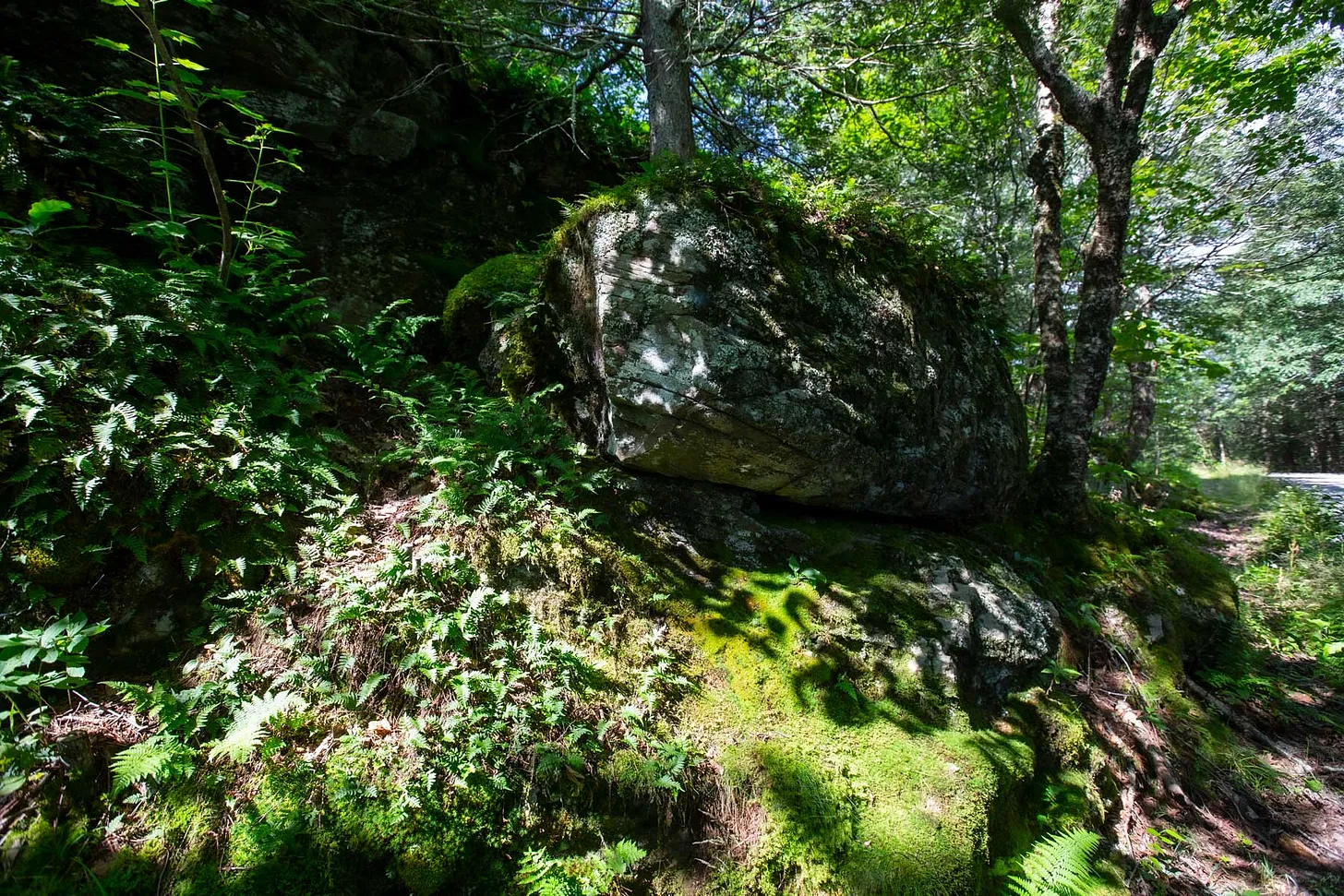
Everyone is in the Same Boat — Sort Of
And they know that most of their neighbors are in the same situation. We could do something about this. We could help one another; we could help ourselves. That is the purpose of community. But that does not seem to be in the discussion.
The “free enterprise” spirit of the United States and the pride in not having to ask for, or receive, assistance of any kind, still have a way of dominating. This of course finds its counterpoint in those who do a good job living off of government assistance (other than Social Security or SSI). In the rural area where I live, I would not be surprised if that was one in four people, or more.
This leads to resentment, as everyone is scrambling to make a living, but some people are supporting the others against their will and despite their own challenges.
And then for entertainment, many people tune into speculative reports that the whole thing is coming down any minute now. This is a Christian tradition. People have been flocking to the New World since the 16th century to have a better place to experience The End of Days. It’s so pervasive, we forget about it. But the psychology is a little like this: “My life is so hard, it’s good that the end is near.”
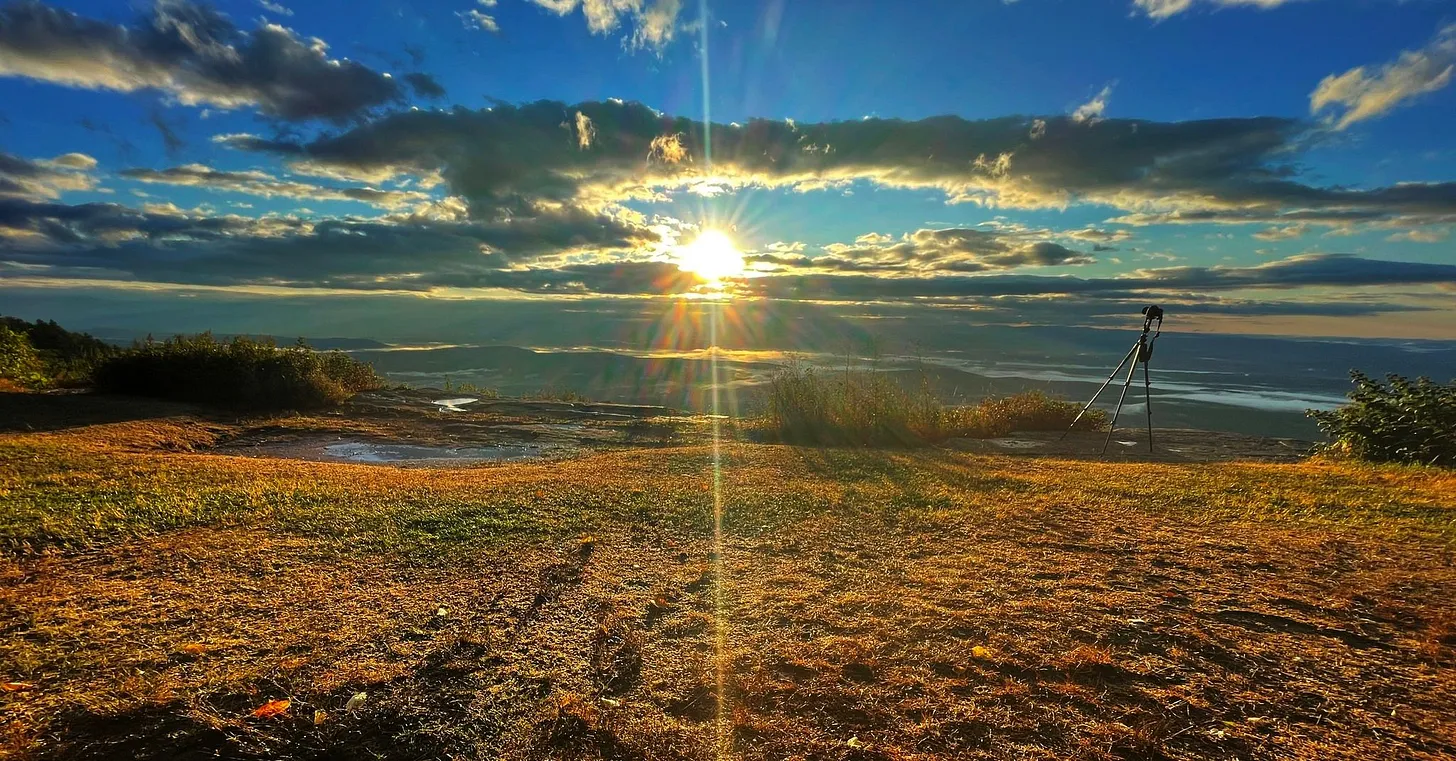
Where is the Discussion of Solutions? Where is the Discussion of our Spiritual Situation?
What is missing is a conversation about our spiritual state. I guess this has always been the thing that fed the fundamentalist churches and cults, neither of which count as discussion or as solution.
We could start by admitting the fear we are feeling. That would take some honesty and some vulnerability. In the public realm, there is little reward for doing so.
I produce a diversity of kinds of high-quality content, all of it professional level. My posts get the most traffic and subscriptions when they push buttons: when I expose a fraud, when there is a controversy that triggers people, when something painful happens, or when there is an environmental disaster. Then suddenly I am popular and I have 50,000 views.
This is an example of the power rising up from the ground, not descending from on-high. People read what they want, and what they identify with, and what most people want is to keep the adrenaline rush going — or to have their fear vindicated.
In this environment, people may feel foolish for thinking anything will help. As Kurt Cobain, himself a prophet of doom, pointed out, being happy feels like stupidity.
It’s not that we are being consumed by this mentality and state of being; we have already been, and now it’s a question of what to do. Given the way things are going — mentally and spiritually — it’s fair to admit we are in an impossible situation. But it takes some courage to say that out loud.
And it may take some courage to say that we need a better way.
Now would be a good time.
With love,

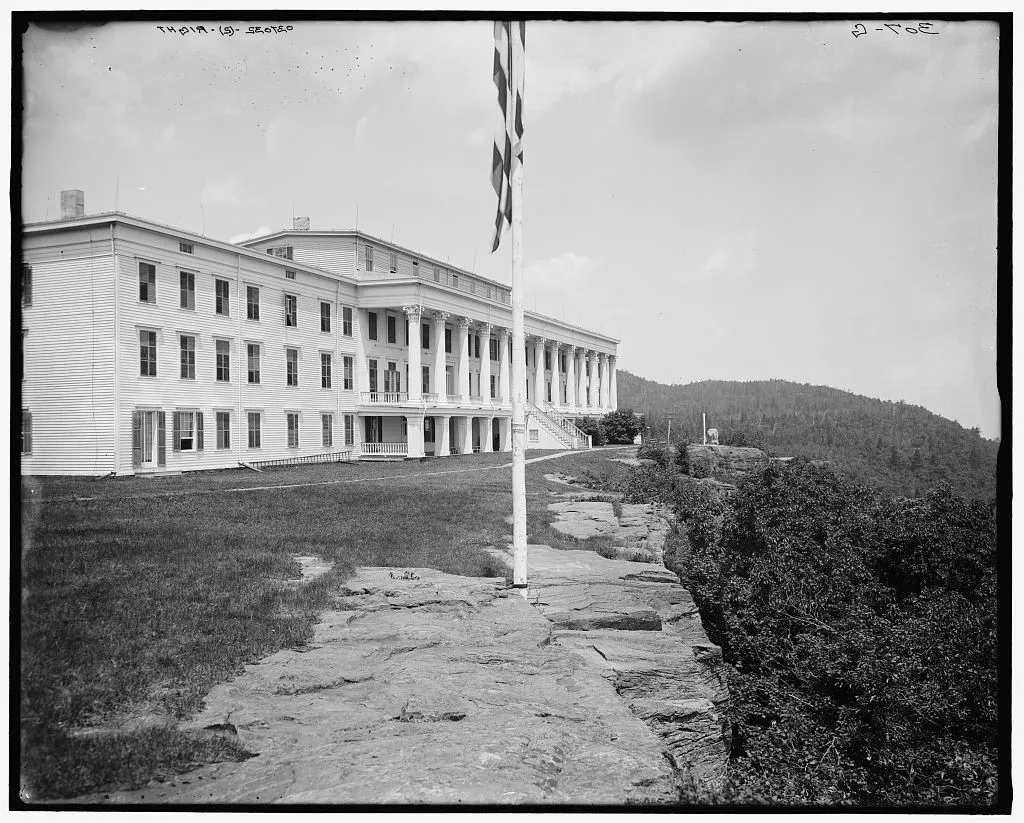
PS — As I sat meditating in the silence on the bench near the edge, it occurred to me the great fuss that had come and gone from the place. The scale of the business and the hundreds of thousands of people who had come through for more than a century; all the things that happened there; all that was said; all the personal and business dramas; the abandonment of the site in 1941 when the World War broke out; the state burning it down in 1963 — all were replaced by a little stand of trees that now cover the land where the Mountain House once stood. This is also true of our phase of history as well. The premonitions of disaster are merely a cover for the truth that we live in time, and all things change, in time. Time is all we have. — efc
